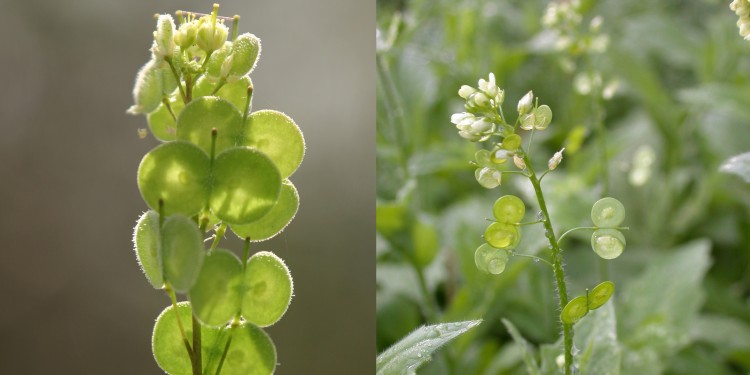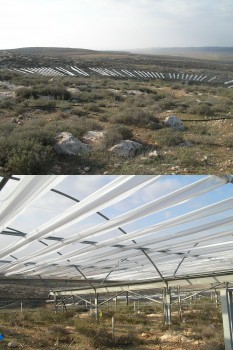
Rapid evolution under climate change
Ecosystems are threatened worldwide by rapid climate change. Plants play a critical role in all ecosystems because they are at the basis of all food webs. For many regions that are already very dry today, such as deserts or semi-deserts, climate scenarios predict even lower precipitation levels. A team of researchers led by Prof. Dr. Katja Tielbörger from the University of Tübingen has now discovered that certain plant species can evolve very quickly under drought conditions. This means that the modified plant traits are genetically fixed and passed on to the next generation. The study involved researchers from the Universities of Hildesheim and Cologne and Dr. Christian Lampei from the Institute of Landscape Ecology at the University of Münster. The study has been published in the journal "Ecology Letters".
Utilization of a long-term field experiment

In the current study, the team focused on a small annual crucifer (Biscutella didyma), a species that occurs in extreme deserts up to rather wet Mediterranean regions. "We have looked at a large number of traits whose genetic information has been well researched and which have a huge influence on the plant's ability to withstand drought," said Johannes Metz, the first author of the study, formerly postdoc in Tübingen, who is now Professor at the University of Hildesheim. A special feature of the long-term experiment was that it included four locations along a very steep rainfall gradient. The research team investigated the plant traits that change along the gradient and compared them with the response of the plants to the experiments.
The speed of adaptation differed among traits
The researchers observed that within only ten years, plants originally adapted to more humid conditions developed an earlier flowering time under artificial drought and put more resources into seed production. “The strength of our study is that it used several lines of evidence to establish that the observed evolutionary changes were in fact advantageous under changed conditions,” says Christian Lampei. “One line of evidence was that the same adaptations were found in desert populations of the species, another that they were advantageous in a drought experiment," explains the scientist. "Thus, the experiment gives us a strong indication that the evolution of these properties was indeed an adaptation to climate change." Interestingly, there were also several vital traits that did not evolve in the experiment, such as water use efficiency or seed dormancy.
"The message of our study is therefore only partly optimistic," says Johannes Metz. "Although we were able to show that rapid evolution is possible for important plant traits, there are also traits for which the adaptation processes may be too slow to keep pace with climate change”.
Original publication:
Johannes Metz, Christian Lampei, Laura Bäumler, Herve Bocherens, Hannes Dittberner, Lorenz Henneberg, Juliette de Meaux, and Katja Tielbörger (2020): Rapid adaptive evolution to drought in a subset of plant traits in a large-scale climate change experiment. Ecology Letters. Doi: 10.22541/au.159231512.24779850
